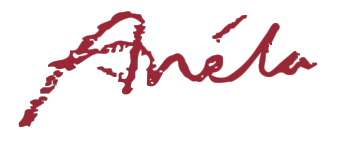U bent hier:: Home > Prijzen > Dissertatieprijs
Anéla-AVT Dissertatieprijs
Jaarlijks kiest een onafhankelijke jury voor de Algemene Vereniging voor Taalwetenschap, de Anéla en de Landelijke Onderzoekschool Taalkunde het beste taalkundige proefschrift dat in het afgelopen jaar aan een Nederlandse universiteit verdedigd is. De prijswinnaar wordt de laatste jaren bekend gemaakt op het feestelijke Taalgala (onderdeel van de Grote Taaldag). De winnaar ontvangt een aardige geldprijs, en de afgelopen jaren is een samenvatting van het bekroonde proefschrift gepubliceerd in het tijdschrift Nederlandse Taalkunde.
Ook dit jaar reiken AVT en Anéla de dissertatieprijs uit aan de auteur van het beste taalwetenschappelijke proefschrift, verdedigd in het academisch jaar 2022-2023. De jury (bestaande uit Marijke de Belder, Jan Berenst, Crit Cremers, Ulrika Klomp en Pia Sommerauer) heeft drie kandidaten genomineerd voor de prijs:
- Suzanne Bogaerds-Hazenberg
Text structure instruction in Dutch primary education: Building bridges between research and practice (pdf) - Cas Coopmans
Triangles in the brain: The role of hierarchical structure in language use (pdf) - Silvia Terenghi
Missing Person. Structure and change in Romance demonstratives (pdf)
De prijs wordt uitgereikt tijdens het feestelijke Taalgala, aan het eind van de Grote Taaldag op vrijdag 2 februari 2024 in Utrecht.
Secretaris van de jury is dr. Gudrun Reijnierse (namens het Anéla-bestuur). De tweede secretaris is dr. Sterre Leufkens (namens het AVT-bestuur). Voor meer informatie over de AVT/Anéla-dissertatieprijs 2023 kunt u contact opnemen met Gudrun of Sterre.
Winnaar AVT-Anéla Dissertatieprijs 2022▲
De AVT/Anéla-dissertatieprijs voor het best taalkundige proefschrift van het afgelopen jaar (2022) is gewonnen door Alex Reuneker voor zijn proefschrift over conditionele constructies in het Nederlands.
De Anéla/AVT-dissertatieprijs wordt jaarlijks uitgereikt aan de auteur van het beste taalwetenschappelijke proefschrift dat het afgelopen jaar aan een Nederlandse universiteit is verdedigd. Alex Reuneker (Universiteit Leiden) won de prijs voor zijn proefschrift Connecting conditionals: a corpus-based approach to conditional constructions in Dutch. In zijn onderzoek bekeek Reuneker welke classificaties er van conditonele constructies bestaan in de wetenschappelijke literatuur. Dit vergeleek hij met de uitkomsten van een corpusanalyse van dergelijke constructies in het Nederlands. Volgens de jury is het proefschrift een voorbeeld in theoretische diepgang en methodologische breedte, en zijn de conclusies uitstekend onderbouwd én kristalhelder opgeschreven. Lees hier het volledige juryrapport: AVT_Anela_DissertationPrizeReport_2022_FINAL
De jury bestond dit jaar uit: Beyza Sümer, Ad Backus, Mike Huiskes, Maarten Kossmann en Nicoline van der Sijs). De drie genomineerde kandidaten waren:
- Daan Hovens (Maastricht University): Power dynamics at work: an ethnography of a multilingual metal foundry in the Dutch-German borderland
- Alex Reuneker (Leiden University Centre for Linguistics): Connecting conditionals: a corpus-based approach to conditional constructions in Dutch
- Sybren Spit (University of Amsterdam): Awareness and instruction when kindergarteners acquire grammar.
In de filmpjes (klik op de titels van de proefschriften) introduceren zij hun dissertaties. De prijs werd uitgereikt tijdens het feestelijke Taalgala, aan het eind van de Grote Taaldag op 3 februari 2022 in Utrecht.
Eerdere winnaars Dissertatieprijs
- 2021: Ulrika Klomp, Universiteit van Amsterdam, A descriptive grammar of Sign Language of the Netherlands
- 2020: Imme Lammertink, Universiteit van Amsterdam, Detecting Patterns: Relating statistical learning to language proficiency in children with and without developmental language disorder.
- 2019: Luis Miguel Rojas Berscia, Radboud Universiteit Nijmegen, From Kawapanan to Shawi: Topics in language variation and change.
- 2018: Tessel Boerma, Universiteit Utrecht, Profiles and paths. Effects of language impairment and bilingualism on children’s linguistic and cognitive development.
- 2017: Kobie van Krieken, Radboud Universiteit Nijmegen, Linguistic viewpoint in crime news narratives: Form, function and impact.
- 2016: Barend Beekhuizen, Universiteit Leiden, Constructions Emerging: A usage-based approach of the acquisition of grammar.
- 2015: Koen Sebregts, Universiteit Utrecht, The Sociophonetics and Phonology of Dutch r.
- 2014: Hans Rutger Bosker, Universiteit Utrecht, The processing and evaluation of fluency in native and nonnative speech.
- 2013: Titia Benders, Universiteit van Amsterdam, Nature’s distributional learning experiment: infants’ input, infants’ perception and computational modelling.
- 2012: Mark Dingemanse, Radboud Universiteit Nijmegen, The Meaning and Use of Ideophones in Siwu.
- 2011: Sander Lestrade, Radboud Universiteit Nijmegen, The space of case.
- 2010: Anna Kijak, Universiteit Utrecht, How stressful is L2 stress? A cross-linguistic study of L2 perception and production of metrical systems.
- 2009: Margot Rozendaal, Universiteit van Amsterdam, The acquisition of reference: A cross-linguistic study.
- 2008: Brigitte Pakendorf, Universiteit van Amsterdam, Contact in the Prehistory of the Sakha (Yakuts). Linguistic and genetic perspectives.
- 2007: Tamás Bíró (Universiteit Groningen), Finding the Right Words: Implementing Optimality Theory with Simulated Annealing.
- 2006: Sonja van Boxtel: Can the late bird catch the worm? Ultimate attainment in L2 syntax, Radboud Universiteit Nijmegen, 2005.
- 2005: Bert Botma: Phonological Aspects of Nasality: An element-based dependency approach. Amsterdam, 2004.
- 2004: Elma Blom: From root infinitive to finite sentence. The acquisition of verbal inflections and auxiliaries. Utrecht, 2003.
- 2003: Dirk-Bart den Ouden: Phonological encoding deficiencies in conduction Aphasia; Groningen, 2002
- 2002: Onno Crasborn, Phonetic Implementation of Phonological Categories in Sign Language of the Netherlands. Leiden, 2001.
- 2001: Ineke van de Craats, Conservation in the acquisition of possessive constructions: a study of second language acquisition by Turkish and Moroccan learners of Dutch; Tilburg, 2000.
- 2000: Joost Dekkers, Derivations & Evaluations: on the syntax of subjects and complementizers . Amsterdam,1999.
- 1999: Jürgen Bohnemeyer: Time relations in discourse. Evidence from a comparative approach to Yukatek Maya. Tilburg 1998.
- 1998: Anastasia Giannakidou: The landscape of polarity items . Groningen 1997.
- 1997: Ad Backus: Two in one: bilingual speech of Turkish immigrants in The Netherlands. Tilburg 1996.
- 1996: Marc van Oostendorp: Vowel quality and phonological projection. Tilburg 1995.
- 1995: Paula Fikkert: On the acquisition of prosodic structure. Leiden 1994.
- 1994: Jan-Wouter Zwart: Dutch syntax: A minimalist approach. Groningen 1993.
